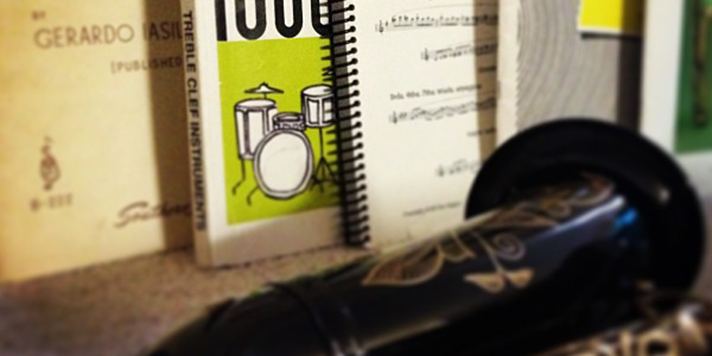This post is a variation of an article that originally appeared on Shannon Kennedy’s foreign language blog.
I believe it was Wynton Marsalis who once said something along the lines of “practicing 30 minutes everyday is better than practicing 3.5 hours every few days.”
Like most things we strive to improve upon, a little bit of (consistent) effort goes a long way. Practicing around half an hour everyday can do so much to help you grow and improve. It’s a short amount of time that’s easy to set aside. Plus, you’re far more likely to retain the material you work on in short concentrated sessions than in a long and exhausting practice session (although those can be good too).
So make it a goal to set aside short blocks of practice time each and everyday. (I’ve made it one of my goals for this year.)
Sometimes our schedules are overwhelming and finding the time to practice can often seem impossible. As independent musicians (or as students) we have a lot of commitments – gigs, self-promotion, our families, school or jobs, etc. – and in result, practice or the development of new skills on our instruments get pushed back in priority to make time for things that seem more important.
For those of you busy with school, work or personal schedules, here are a few suggestions to help you find time for practice.
1. Listen to the music you are learning while you are driving. Depending on how much time you spend in the car, you can get in a lot of ear training and “practice”! But make sure you’re actually listening to the music and not just playing it in the background.
2. Use your breaks at school or work to practice your instrument. Yes, it can be a bit of a pain to haul your instrument around with you wherever you go, but if you can squeeze in 15 minutes to an hour here or there, it’s definitely worth it. Fifteen minutes of practice a day is better than none at all. Plus, you don’t want to have hauled your instrument around for nothing, so it makes that much more sense to find time to practice.
3. Weekend practice breaks and jam sessions. Invite your musician friends over on the weekend to play and learn new material, or just find the time to practice on your own. Even with a crazy gig schedule, the weekend leaves some time to practice!
4. Short practice breaks. Sometimes it’s impossible to set aside a solid hour or two to practice. Instead try to fit in a few focused 15 minute or 20 minute practice sessions throughout the day. It may be sporadic, but as we said before, it’s better than not finding any time at all. Besides, you’d be surprised what you can accomplish in those short sessions! You can focus on scales, articulation, long tones, sight reading, or playing through a song a few times. But in those short sessions, just focus on one aspect of your playing.
By implementing even these small changes you can increase your practice time around a busy school or work schedule.
How do you make time for practice?
[template id=”182″]
